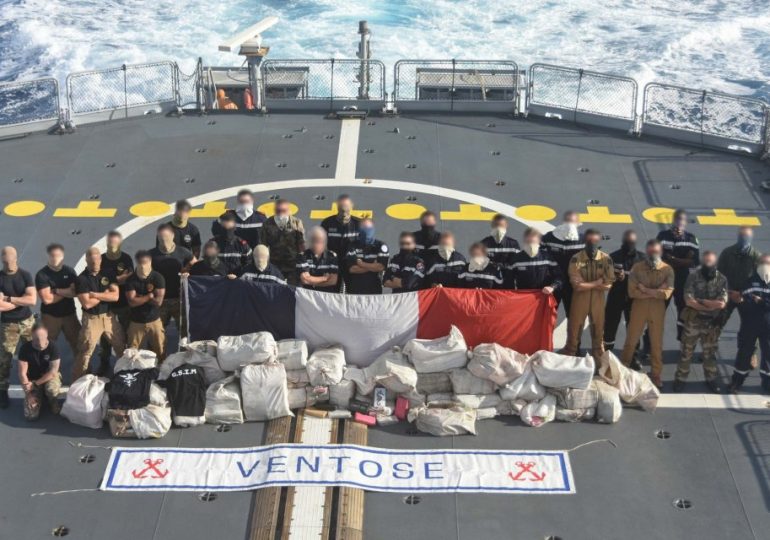THREE Brits have been arrested over a huge £100 million cocaine bust off the coast of South America.
Over a tonne of cocaine was seized from a yacht heading for Britain.
Cops stand on deck the boat with the huge haul of cocaine
Drugs found on the boat – off the coast of French island Martinique
Three crew members were arrested
Cops in France and Spain worked to target the gang thought to be shipping the cocaine to Europe.
One police officer involved in the bust said: “I have no doubt that some of these drugs were destined for the UK”.
They found 40 bales of cocaine on the yacht, off the coast of overseas French island Martinique.
The estimated value for the drugs is around £96 million.
The three crew members arrested included a 29-year-old from Scotland who was controlling the vessel.
Spanish cops also arrested five others in Marbella and Valencia in connection with the bust.
A 62-year-old man from Lincolnshire and his son, 24, were pounced on by cops as they sat down in a Marbella restaurant.
The crew members have all been taken to Martinique, north of South America, to face criminal charges.
All five are currently in police custody.
The National Crime Agency’s (NCA) International Liaison Officer in Madrid, Paul Owen, said: “This multi-national operation has seen a huge consignment of cocaine prevented from reaching Europe, and huge profits denied to organised criminals.
“I have no doubt that some of these drugs were destined for the UK.”
NCA officers from around the globe worked to target the group in a move Owen said he hopes will “prevent them from fuelling violence, intimidation and decay in UK communities”.
The yacht was intercepted on December 18 and arrests were made in Spain on the following day.
Owen added: “Tackling these global networks requires international law enforcement co-operation, and I’m grateful to our partners for their assistance.
“Working together we are determined to do all we can to target, disrupt and dismantle drug trafficking groups, and prevent them from fuelling violence, intimidation and decay in UK communities.”
Leave a comment
















